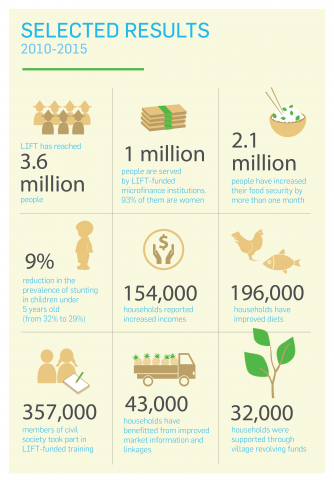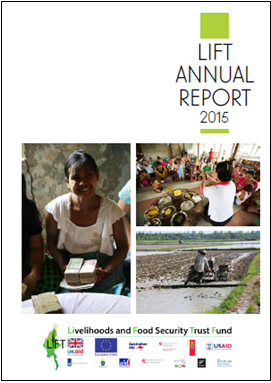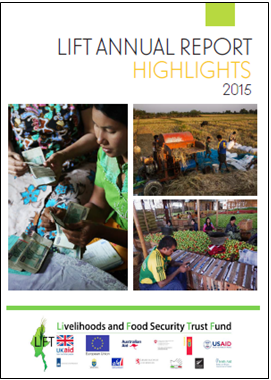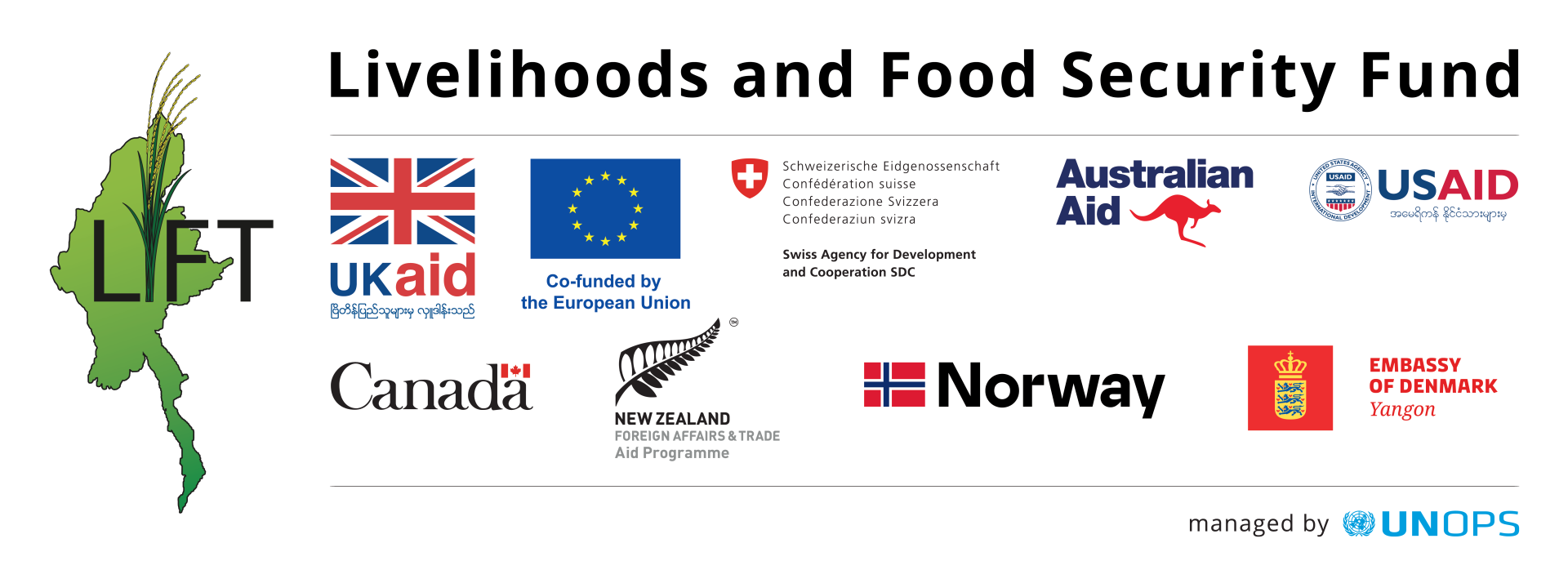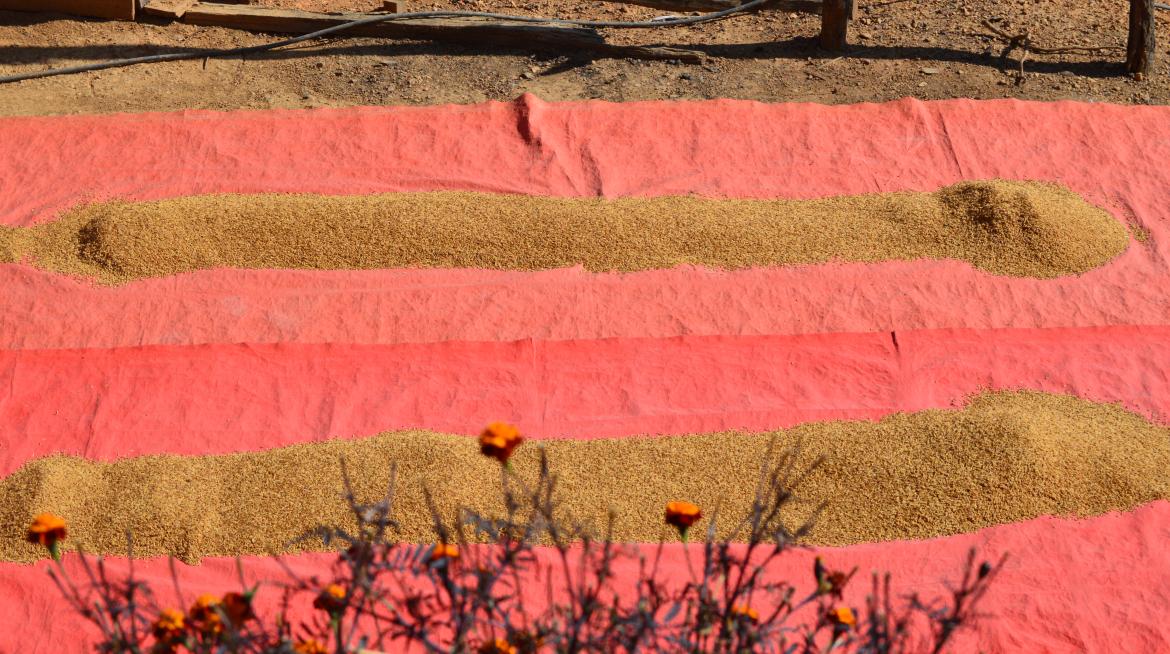
LIFT is reducing the number of rural people living in poverty and hunger in Myanmar, according to the results presented in the LIFT Annual Report 2015 which was published in English on-line today. There are two versions of the report: a full report (English, Myanmar) and a highlights version (English, Myanmar).
Fund Director, Andrew Kirkwood said, "Myanmar has changed enormously over the last five years and LIFT has had to change to maintain its relevance and to maximize its impact. We're proud of what LIFT has achieved so far - the Fund has now reached 3.6 million people, or around ten per cent of Myanmar's rural population."
LIFT achieved or exceeded its targets in 14 out of the 15 indicators that span its operations from 2010 - 2015, exceeding by more than ten percent in 11 indicators and meeting targets in a further three. Notable results are seen in the areas of poverty reduction and financial inclusion.
Some highlights:
- More than 2.1 million people have increased their food security
- Nearly 1 million people are served by LIFT-funded microfinance institutions - 93 per cent of them are women
- 680,000 people live in households with increased incomes
- 880,000 people people live in households with increased assets, an important measure of household resilience
In addition, LIFT household surveys (2012, 2013 and 2015) uncover a considerable shift of households earning a ‘poor-level income’ to a ‘middle-level income’. The figure below shows that there has been a sharp increase in households reporting to have earned more than MMK 100,000 a month.
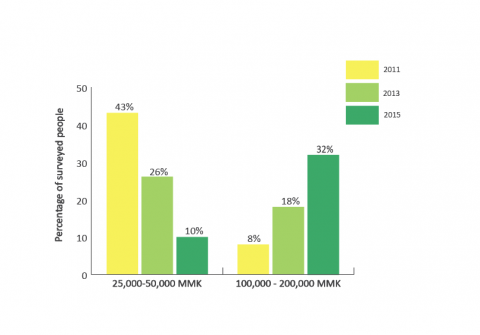
2015 marked LIFT’s sixth year of operation in Myanmar, when ambitious new programmes were designed for the four agro-ecological areas where LIFT works: the Ayeyarwady Delta, the Dry Zone, the Uplands and Rakhine. LIFT opened a migration programme and the financial inclusion programme extended to become LIFT's largest. The Fund continues to provide productive support across its designated focus areas, namely financial inclusion, inclusive value chains, nutrition, land tenure security, social protection, gender equality and climate change adaptation.
The change of government will present new opportunities to utilise LIFT’s evidence and experience to support systemic change for an inclusive rural transition. In order to increase the likelihood of sustainability of its activites, LIFT is developing a portfolio of private sector partnerships based on principles of responsible investment. LIFT’s support for local civil society strengthens independent voices for rural people. LIFT is also supporting government capacity to implement an inclusive rural growth agenda.
LIFT thanks its partners for delivering strong results that are improving the lives of millions of people.
Hard copies of the reports will be available at the UNOPS Fund Management Office in July.
